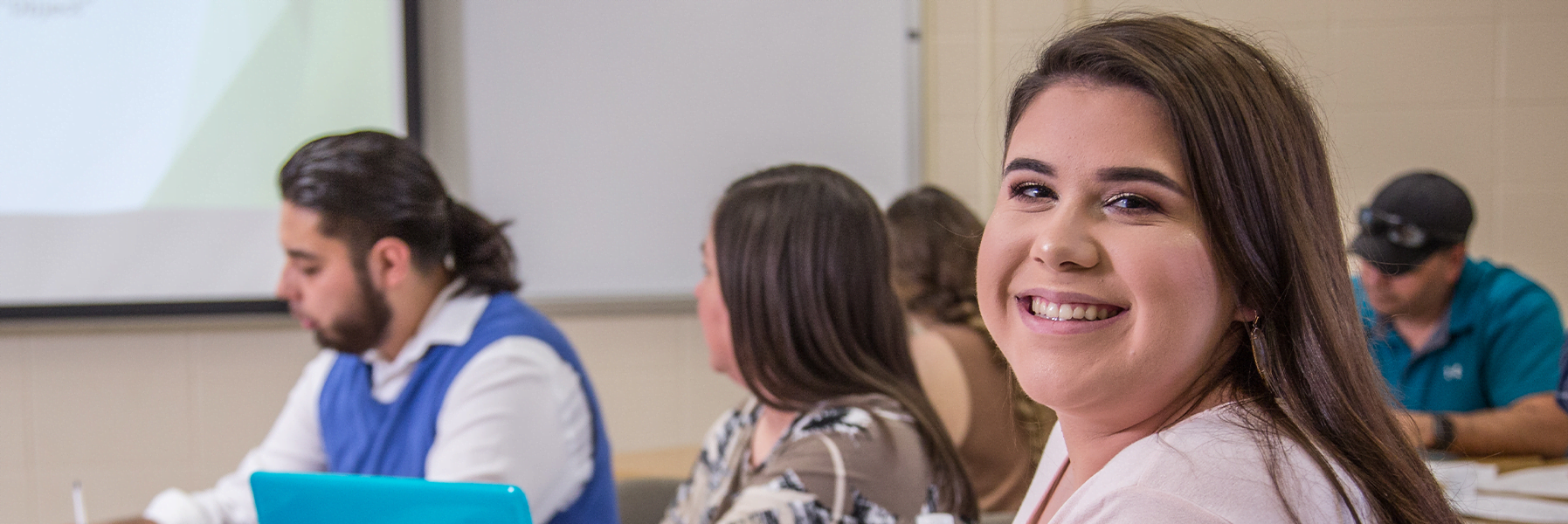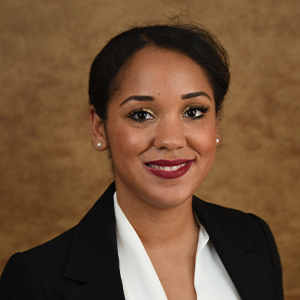Welcome and Overview
Welcome to the UHV Master’s program in Counseling Psychology, Forensic Psychology, and the Specialist in School Psychology Program at University of Houston Victoria (UHV) in the College of Liberal Arts and Social Sciences. The Psychology Department at UHV has been offering educational, informational, and cultural opportunities to students.
This handbook contains policies specific to the Forensic Psychology, Specialist in School Psychology, and Counseling Psychology Program’s that supplement those found in program specific handbooks, course syllabi, and the UHV Catalog. Please become very familiar with this handbook. Students are responsible for knowing the material in the Handbook and using it as a guide to academic and nonacademic policies and procedures within the Psychology Graduate program.
The information in this handbook is updated annually. Changes may also be made throughout the academic year. If a change occurs, an announcement will be posted on the psychology website located on the Liberal Arts and Social Sciences webpage; students will also be notified via e-mail.
Congratulations on your decision to advance your education. The faculty and staff are here to help you reach your goal!
The information below is general to Graduate Programs in Psychology as a whole (Please review either the Counseling Psychology, Forensic Psychology or Specialist in School Psychology Handbooks for specific program requirements).
Criminal History Acknowledgement
Occupational License HB 1508
As outlined in the Texas Occupations Code, Section 1, Chapter 53, Sections 53.151 – 53.152 (amended in 2017 by HB 1508), if you are currently enrolled in an educational program that may prepare an individual for an initial occupational license as defined under Texas Occupations Code Section 58.001, in accordance with state law, please be advised of the following:
- An individual who has been convicted of an offense may be ineligible for issuance of an occupational license upon completion of the educational program.
- Each licensing authority that may issue an occupational license to an individual who completes an educational program must establish guidelines that state the reasons a particular crime is considered to relate to a particular license and any other criterion that affects the decisions of the licensing authority.
- Local or county licensing authorities may issue additional guidelines related to criminal history. Applicants should contact their respective local or county licensing authority for more details.
- A person may request a criminal history evaluation letter regarding the personal eligibility for a license issued by a licensing authority under Texas Occupations Code Section 53.102.
Students are encouraged to review all applicable eligibility requirements related to the respective occupational license. Questions related to eligibility requirements should be directed to the applicable licensing authority.
Academic Regulations and Grading
Communication
Effective communication between the Psychology Program faculty and students is critical for success in the program. To facilitate communication, the program keeps a database of addresses, phone numbers, and email for all students, as well as recent graduates. Students should remember to keep their information updated through and Student Records.
Electronic Mail
It is a program expectation that all students will maintain and access their UHV email accounts on a frequent basis. Program communication is handled almost completely through email; therefore, having your correct UHV email address on file with the program is imperative!
Assessment Course Material Fee
All graduate level psychology assessment courses, across all three programs (School, Counseling, and Forensic) have an assessment course fee of $150.00. This fee is to purchase consumable protocols and access for test kits utilized in the courses. The fee will be due at the beginning of the semester and can be paid online through UHVConnect. Please print a copy of your receipt and bring it on the first day of your assessment course. Students should anticipate this fee across their degree plan and budget financial aid requests with this figure in mind.
Change of Program
Psychology Graduate Students wishing to transfer between Graduate Psychology programs must apply for admission to the new program and will be considered with other applicants entering in the Fall semester. They are not guaranteed acceptance into the new program. Repeated switching between programs is strongly discouraged as it often delays your desired completion date and disrupts the continuity of your professional skill development.
Any student wishing to complete degree requirements for two Psychology Graduate programs must fully complete one program before applying for a second Psychology graduate degree program. As a UHV alumnus, you are only allowed to transfer up to 50% your previous programs courses to the new program’s degree plan if you are accepted.
Professional Development
Throughout the academic year each program may offer additional opportunities for professional development or social interaction with program members. Details regarding these events and attendance requirements will be given to students with advance notice. Students are also encouraged to attend regional/national conferences, either to present research findings or to participate in the professional activities of peers and colleagues. Attendance at professional conferences is also a great way to develop and refine thesis projects, if desired. The Department also has a chapter of Psi Chi, the International Honor Society in Psychology and School Psychology Association (SPA), in which graduate students are encouraged to join and participate in the above-mentioned organizations. In addition, students are encouraged to join professional organizations such as the American Psychological Association (APA), American Counseling Association, National Association of School Psychologists (NASP), Texas Association of School Psychologist (TASP), Texas Association of Psychological Associates (TAPA), Texas Psychological Association (TPA), and Texas Counseling Association (TCA).
Review of Student Progress
Student progress will be reviewed on a regular basis with the intention of identifying students who may need remediation to continue in the program. Continuation in the Counseling, Forensic or Specialist in School Psychology program requires satisfactory academic performance, appropriate personal attributes, and ethical behavior. In addition, students must demonstrate the acquisition of appropriate clinical and professional skills. All students are evaluated annually and as needed for academic progress and professional behavior and development. A student who fails to meet minimal criteria will be asked to sign a probation agreement that specifies the remediation terms for continuation in the program. Dismissal from the program will result if the student fails to follow the terms of the agreement. See the below information for more detailed information concerning the program’s expectations regarding appropriate personal attributes.
Appropriate Personal Attributes for the Graduate Psychology Programs
Responsibility
- Shows a pattern of reliable attendance in classes and at practicum/internship obligations.
- Shows a pattern of completing class projects and other program requirements on time.
- Shows a pattern of a good effort when working on university tasks.
- Shows a pattern of accepting responsibility for mistakes.
Respect
- Shows a pattern of respect for others and sensitivity to others.
- Does not engage in a pattern of offensive practices.
- Does not act in a hostile manner- name calling, intimidation, abusive or threatening behavior, sexual harassment, attempts to humiliate or ridicule others, repeated expression of racist, sexist or other prejudicial attitudes.
Personal Problems
- Shows sufficient insight and judgment to know the limits of ability to avoid harming clients or potential clients.
- Is not a danger to self or others.
- Is not too distressed to be effective in the skills required for Counseling, School, and Forensic, or testing.
- Is able to conform to the demands of the tasks involved in the program's education.
- Exhibits no impairments that may lead to inability to conform including substance abuse, delusions, and poor reality testing among other conditions.
Integrity
- Shows a pattern of integrity and honesty.
- Does not show a pattern of deception and lying.
- Does not cheat or engage in plagiarism.
Self-Presentation and Professional Demeanor
- Shows a pattern of good personal hygiene and grooming, as well as site-appropriate professional attire.
- Shows ability and potential to develop appropriate professional etiquette.
Probation and Remediation
Counseling, Forensic and Specialist in School Psychology students are expected to maintain adequate progress in their respective programs of study. In case of probation and remediation concerns, please review your program’s policy concerning probation and remediation procedures located in each specific program’s handbook.
Remediation Plans
The psychology faculty are committed to the successful development of our students into competent professionals and leaders. As such, the faculty recognizes their obligation to assist students in obtaining remedial assistance as needed, to consult with colleagues and document their decision to refer students for assistance or to request that students be dismissed from the program as deemed necessary from appraisal of the student’s academic performance, personal characteristics and work habits and professional behaviors reviewed as a component of the annual student review.
Unfortunately, there are times when a student may not perform all of the requirements necessary to fulfill the expectations of a didactic or applied course or he or she may exhibit behaviors that are inappropriate for professional graduate study. With regard to academic deficiencies or problematic behavior, the student’s program director will notify the student in writing and the student will be placed on a remediation plan to identify goals and objectives for improved performance. When placed on a remediation plan, the student will receive a Letter of Notification and a Remediation Plan Agreement & Contract, which will indicate the time frame of the student’s remediation. The student will be required to return the signed agreement in a timely manner. This formal plan is outlined in writing, reviewed by the faculty, signed by all relevant parties, and placed in the student’s file. This plan is then explained to the student in conjunction with identification of remedial supports in order to ensure optimal success for the student. The program director is responsible for assessing successful completion of the remediation plan. If the student does not meet the conditions of the Remediation Plan Agreement in the time frame indicated in the plan, the student can be placed on academic probation or subsequently discontinued in the program, at the discretion of the Advisory Committee. Students can be placed on remediation for a maximum of two semesters. If the student is still not making appropriate progress after 2 semesters of remediation, the faculty will meet to discuss the student’s removal from the program and/or advancement to behavioral probation.
Behavioral probation
Students' academic and professional development is of the utmost concern in the psychology graduate programs, as is the welfare of both students and the public. Usually, concerns about student behavior or conduct issues can be resolved constructively between the student, an instructor, or advisor. However, in cases where behavioral issues are persistent or are of a nature which interfere with student development or put others' development or welfare in jeopardy, a more formal probationary process may become necessary. The goal of behavioral probation is to create a more formal structure to assist the student's academic and professional development while ensuring the safety of all concerned: the student, colleagues, and members of the public.
In this case, the following process should occur:
1. The student will be invited to a meeting with the program director and members of the graduate faculty in writing, including the purpose of the meeting and specific incidents which triggered the need for the meeting. For instance, a student might be sent a request to meet with graduate faculty after a practicum supervisor stated that the student was engaging in the following unprofessional conduct: cursing in front of clients, wearing inappropriate attire, or failing to attend mandatory meetings with their supervisor.
2. The student will be informed that information gathered in the meeting could possibly result in sanctions for the student, including being placed on behavioral probation. The probation would involve remediation work designed to assist the student in the area(s) of concern found to be valid by the committee. The student will be informed that, once the findings are assessed, the Committee may instead decide that no sanctions are warranted.
3. After the meeting with the student, if a sanction is warranted, including behavioral probation, the student will be informed in writing of the sanction and the remediation. That student has the right to appeal the findings to the Chair of Social and Behavioral Sciences. If the student meets with the Chair and is dissatisfied with the outcome, the student may appeal to the Dean of Liberal Arts and Social Sciences.
Practica and Unsatisfactory Performance
Practicum is an integral piece of all three of the graduate programs. During practicum, students have to apply skills learned in their academic courses, as well as demonstrate positive personal attributes and interpersonal relationships. Students who demonstrate unsatisfactory performance at midterm will be subject to a clinical review and plan for improvement with the university practicum supervisor. At that time, the practicum supervisor will inform the program director about the unsatisfactory behavior and plan for improvement. Students who obtain a letter grade of U for the semester will automatically be placed on behavioral probation and receive a remediation plan. If a student obtains two cumulative U letter grades for two semesters of practica then the student’s admittance to the program will be withdrawn.
Unethical Behavior and Academic Dishonesty
Due to the high degree of morality and ethical conduct of the psychology profession, unethical behavior and academic dishonesty of any form, such as plagiarism or cheating, will not be tolerated and is considered unacceptable behavior of graduate students in Psychology. Any student engaging in unethical behavior and/or in direct violation UHV’s Academic Dishonesty policy, as noted in the UHV Student Handbook, will be subject to reasonable and appropriate sanctions as outlined by University policies. Please see UHV Student Handbook for further information.
Degree Plan Advisors (from University Catalog)
You are responsible for all requirements of the catalog under which you will have graduated. During your first semester of attendance at the university, the College of Liberal Arts and Social Sciences staff advisor will initiate your degree plan. The degree plan advisor will work with you and your Faculty Advisor to complete a plan for approval. You will sign the plan. The Faculty Advisor and appropriate School Dean also sign when approving it and the Office of Admissions validates the degree plan before it becomes an official document. You will receive a copy when the process is complete, ordinarily during the same semester in which the process began.
The original degree plan is kept on file electronically in Student Records and you and the school of your plan will each receive a copy. Since the degree plan represents your commitment to complete the requirements and the University’s commitment to hold you accountable for meeting those requirements, it is a very important document. In order to change it in any way, secure a substitution form from the Department of Arts of Sciences. The Faculty Advisor and School Dean must approve the change and Student Records validates it before it becomes official.
Please note that if you interrupt enrollment for more than one calendar year, you will need a new degree plan upon your return to UHV. It is important for you to sign and return your degree plan promptly when it is sent to you.
Your Degree Plan/Student Advisor for the Graduate Psychology Programs:






